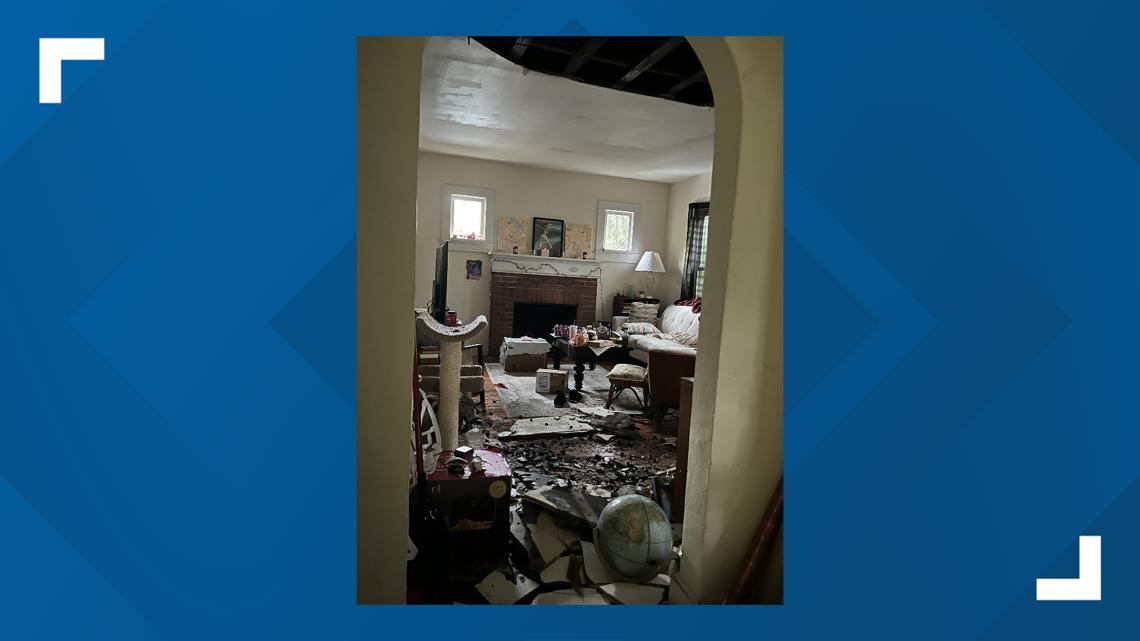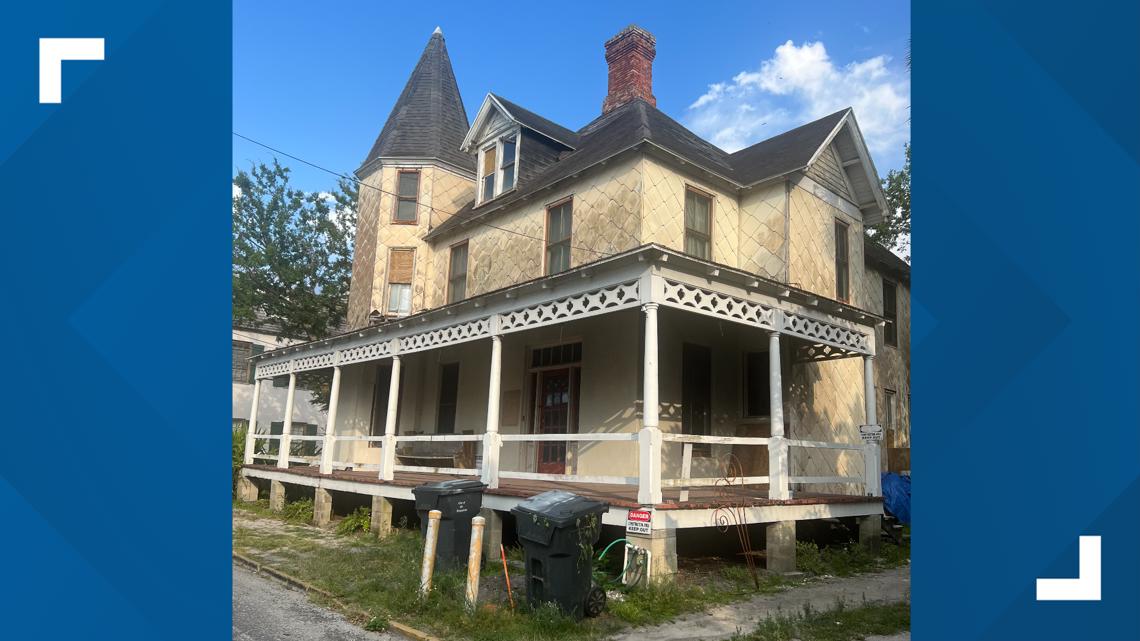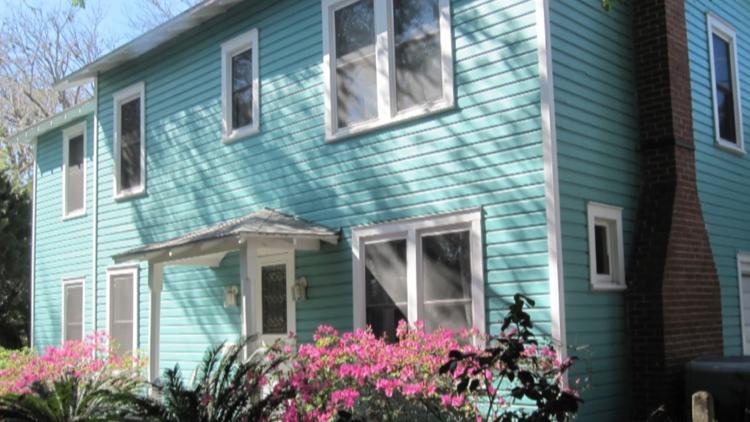ST. AUGUSTINE, Fla. — When a historic house was suddenly demolished in St. Augustine this summer, historic preservationists and others in the community took notice.
When a second old house was torn down a couple weeks ago, First Coast News was contacted, so we checked into it.
Leslee Keys is a historic preservationist in St. Augustine. "We have amazing history," she says.
Keys feels more historic buildings are at risk of being demolished now than in recent years.
"This one was a real surprise," she said, as she pointed her chin toward the lot at 350 Charlotte Street, just a few blocks from Downtown St. Augustine.
A house, built in the 1920's, used to stand there. About two weeks ago, it was demolished. Now the property is an empty lot, with mature trees around its perimeter.
"It just needed too much work," Andrew Miller told First Coast News Monday. He owns the property. He lived in the house in the 1970's when he went to St. Augustine High School. Eventually, he bought it from his parents.
"The house has been in my family for 50 years," he said.
Miller owns two more houses out of state that date back to the 1800's and 1700's. He’s restored buildings before.
Speaking of 350 Charlotte Street, she says: "So if that house had any redeeming architectural value, I would have worked on restoring it, but that house needed so much work. I couldn’t get insurance because it had galvanized pipes. The ceiling had fallen in on the first floor in the living room. It had flooded twice during (hurricanes) Matthew and Irma."


So Miller went through the City’s of St. Augustine’s demolition process.
He said someone from the city government advised him, telling him that in in January 2022, "the state legislature states that if your house was below the nine foot elevation, then you didn’t need to go to HARB."
HARB stands for the Historic Architectural Review Board. Most buildings in St. Augustine up for demolition have to go through a public hearing approval process. However, newer Florida laws like the one that applied to Miller’s house, as well as a new one that was started July 1st, limit local government’s powers to deny demolition.
That worries history groups and preservationists such as Keys, who say more older buildings are at risk of being torn down instead of being restoring.
Referring to Miller's house that was at 350 Charlotte Street, "That is not the only one that sits below flood level in this area of town or in lots of other places in town."
In June, a different house, more than a hundred years old, at 11 Bridge Street in St. Augustine was demolished. It was built for a Countess. The property owner hired an engineer who said it was unsafe, so the city determined the house could be torn down without needing to go through the typical layers of the demolition approval process.


Even though contractors and historic preservations told First Coast News they believed it could have been restored.
Miller wonders about the demo decision for that countess’s house on Bridge Street.
"I know that house very well. I waked by it. It's a beautiful house," Miller said. "I'm sorry that somebody couldn't restore it. I don't' know the cost. I don't' now what was goin going inside of the house."
As for his house, "Just because something is old, doesn’t mean it is historic. If it doesn’t have any architectural detail, or features, that’s something to consider."
Keys said, "There's no reason to be demolishing buildings." She added, "There are just so many was to save the buildings."
Keys believes more education is needed, especially with so many new people new to the area in the last few years. She cites tax breaks for restoration jobs as well as government funds to elevate homes out of flood levels.
As for Miller, he says his house needed more than a literal lift off the ground. It appears he had the legal ability to demolish it according to state laws. And he plans to build a house that will suit his family's mobility issues on the same lot.



